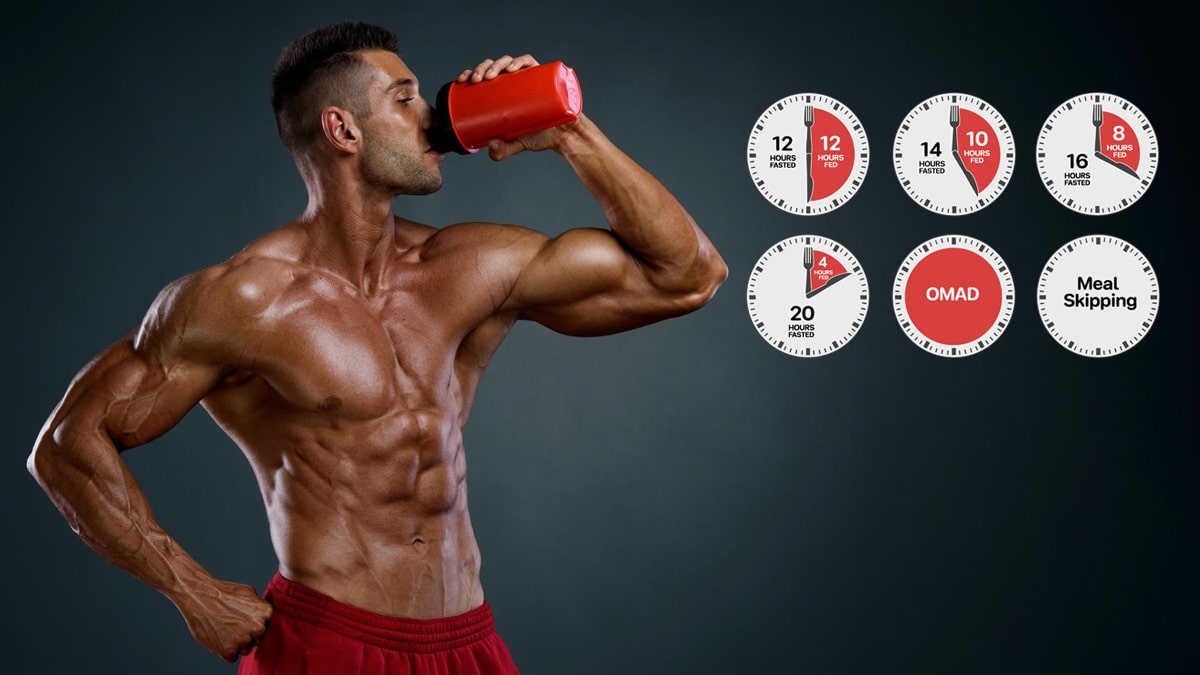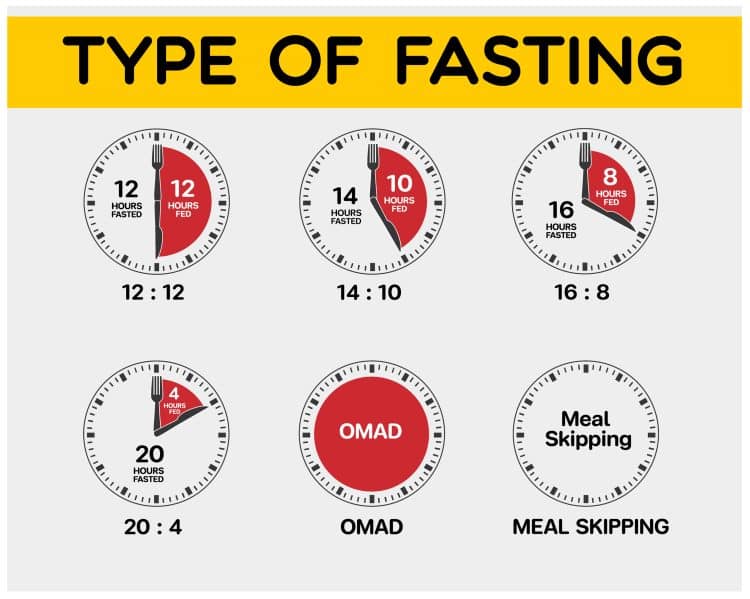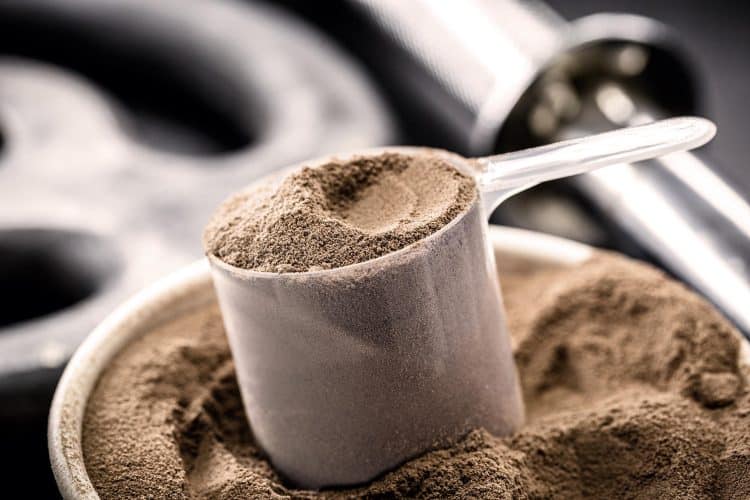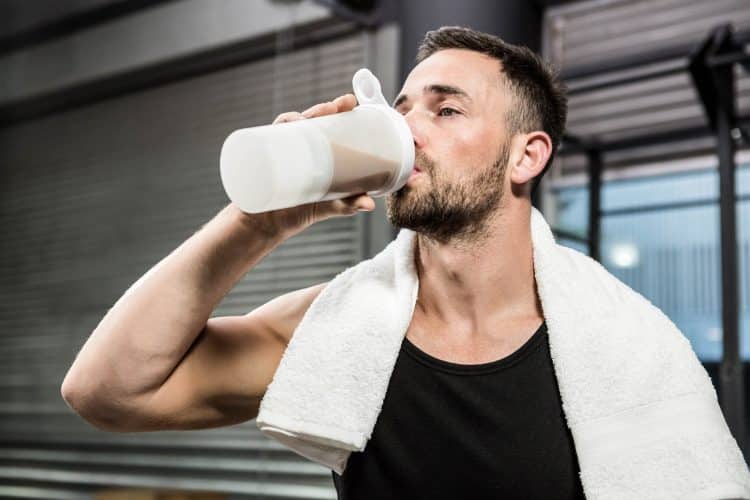How do protein shakes and intermittent fasting go together? Well, according to recent research, these two may be the most effective ways to lose weight or maintain lean muscle mass [1]. So if you’ve been struggling to achieve your fitness goals, read on to learn how intermittent fasting and protein shakes can help.
What is Intermittent Fasting?
Intermittent fasting is a dieting technique that has been around for hundreds of years. It works by alternating between periods of eating and abstaining from eating. This can be done by going without food for several hours or days.
The idea behind intermittent fasting is that it can help you lose weight, manage your blood sugar levels, control your cholesterol levels and even aid in brain function. The body undergoes many changes during these periods without food, meaning that the time spent fasting is healthy for the body as well as productive for weight loss.
Will This Break Your Fast?
Find out if coffee, tea, sweeteners, and other drinks break your fast based on your specific fasting goals.
Check What Breaks My Fast →Types of Intermittent Fasting
Intermittent fasting means not eating for a certain period. It can be done during the day, at night, or both. There are many different types to choose from, including:
- The 16/8 Method: You stop eating after dinner until lunchtime the next day
- The 5:2 Diet: You eat normally five days a week and then fast for two consecutive days
- Eat Stop Eat: You eat normally for three days and then fast for one day
- Alternate Day Fasting: You fast every other day
Protein Shakes and Intermittent Fasting: Do They Go Well Together?
Let’s face it, we all have different fitness goals which require different strategies. Some of us want to gain muscle whilst others want to shred fat and build a lean physique. Whatever your goal, intermittent fasting and protein shakes can help you achieve incredible results.
As you may have read in our other articles on intermittent fasting and nutrition, during the time of fasting, you should not consume any calories. This can break your fast. This is why drinking protein shakes is a little more complex than you may anticipate.
You should avoid drinking or eating any calories during your fasting period. However, you can have protein shakes during your eating window. In an IF feeding window, there is no restriction to what you can have, and taking advantage of protein shakes can be the best way forward!
But when should you drink it? This is a really good question. Experts recommend taking a protein shake within 60 minutes of completing your workouts since this will maximize muscle recovery and minimize muscle catabolism. Therefore, choose the intermittent fasting method that suits your lifestyle better.
What Kind of Protein Shake Should I Use?
Protein shakes are an easy way to get a quick, healthy meal. Whey protein is the most common form of protein; it can help with weight loss because it’s quickly digested by the body and converted into energy rather than stored as fat. Whey can also help increase muscle mass when combined with resistance training.
A good whey protein shake should have at least 20 grams of protein per serving, about 140 calories, zero sugar, low sodium, and no artificial ingredients or preservatives.
Transparent Labs Whey Protein Isolate (Chocolate) Coupon
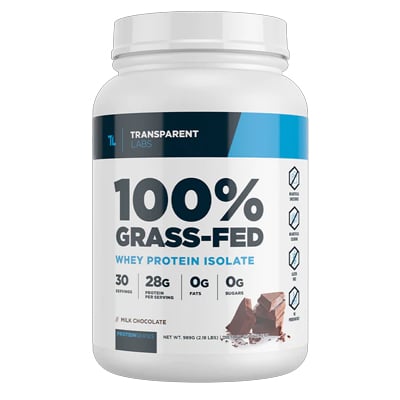
Transparent Labs Whey Protein Isolate (Chocolate) Coupon
Transparent Labs is one of the most trusted supplement brands. Its 100 percent grass-fed chocolate-flavored Whey Protein Isolate is scrumptious and effective. It should be a no-brainer if you are on the market for a chocolate protein powder.
Related: Best gluten-free protein powders.
Why Drink Protein Shakes?
Protein shakes can be a great way to start the day as they pack protein, essential nutrients, and carbohydrates. They can also be used as a meal replacement for lunch or dinner, or as an in-between snack. Many protein shakes contain other healthy ingredients such as vitamins, minerals, and fiber that provide all the nutrients your body needs for optimal functioning.
However, since muscles require many calories per day, some protein shakes are not suitable to replace meals. Some shakes are better for supplementing your diet than replacing certain meals.
Benefits of Drinking Protein Shakes While Fasting
Below, we’ve listed the top 5 benefits of including protein shakes in your diet while fasting:
1. Help You Meet Your Calorie Goals
Drinking protein shakes while intermittent fasting is a great way to reach your calorie goals and build muscle. Many people don’t like the taste of protein powders, so they may enjoy adding fruit to their protein shakes. You can drink up to two protein shakes daily while intermittent fasting to meet your caloric goals. However, this may be harder if your eating window is small. Having protein shakes in a short period can cause bloating and gas.
So, if your goal is to build muscle, drink two shakes a day, choose the right fasting method, and space out your shakes. Remember: Drink at least one shake within an hour of your workout.
2. Aids in Maintaining Muscle Mass
Protein shakes help you maintain muscle mass in several ways. They provide a surge in amino acids, which are the building blocks for protein. They also help repair damaged muscle tissue while fasting. One study found that intermittent fasting led to an increase in lean muscle mass and a decrease in fat mass, which is why having some protein during your fast is important. [2]
A lot of people believe that by skipping breakfast, you’ll end up eating less food throughout the day. And, although studies show this is the case, it doesn’t affect your ability to consume enough protein. You can still reach your protein intake by consuming enough protein-rich foods during your eating window. However, you’ll also need to track your calorie intake to ensure you’ve eaten enough calories to support your muscles. Protein is one thing, but consuming enough calories is just as important for muscle maintenance and growth.
3. Keep You Hydrated
One benefit of drinking protein shakes while intermittent fasting is that it can help you stay hydrated. Not drinking enough water can lead to dehydration. Dehydration can cause health issues such as headaches and nausea. The protein in the shake will also help you feel full and prevent any cravings throughout the day. And protein shakes are a convenient way to replenish your energy levels without adding too many calories.
4. Provides Nutrients for your Fitness Goals
Besides giving you the nutrients and calories you need to get through your day, protein shakes help with muscle recovery and boost your metabolism. A protein shake can be as simple as blending some low-fat milk, oats, banana, and peanut butter for a delicious post-workout shake. If you are trying to lose weight or maintain a healthy diet, try using almond milk instead of dairy milk or soy milk for an even healthier option.
5. Can Help You Stick To Your Fasting Schedule
When intermittent fasting, it can be hard to stick to your fasting schedule without a little help. A protein shake is a perfect option as it will provide plenty of nutrients, calories, and fiber.
FAQs
How much protein do you need while intermittent fasting?
According to the nutritional requirements established by health experts, an average person needs a minimum of 0.8 grams of protein per kilogram of body weight, or 0.36 grams per pound of body weight, per day.
It means that a person who is 150 lbs. needs about 54 grams of protein a day. Someone who is heavier or who exercises may need more. This is because more protein is needed to support more body mass.
Intermittent fasting may be associated with protein loss in muscle due to drastic changes in calorie intake, or intake of only low-quality foods, therefore making it important to monitor your overall protein intake during your fasting period.
Just remember, this protein intake can come from various sources, and not just from protein shakes. Don’t forget to track your overall intake.
Does protein shake break a fast?
Anything that contains calories breaks your fast, including protein shakes. Make sure to drink them during your feeding window.
Should you drink protein shakes fast or slow?
Some people have claimed that drinking protein shakes slowly instead of fast helps with weight loss. However, it doesn’t actually matter how fast or slow you drink them. What matters is their timing.
So, drink them as you would with a normal smoothie, but make sure to drink them within an hour of working out.
What can I drink during a fast?
Water, black tea, coffee, or iced tea are all great options during a fast. If you’re having a sweet craving, try adding some cinnamon to your hot drink for a naturally sweet taste. However, remember that adding milk or sugar adds calories to the beverage. Therefore, make sure to avoid them.
Which protein shake is the best?
Whey protein is the best choice as it’s high in essential amino acids that make up protein — lysine and leucine, in particular. Whey is also easier to digest than other forms of protein, like soy or pea. Keep your shake low-calorie by mixing protein powder in water instead of milk or juice.
What happens if I drink my protein shake during my fasting period?
If you drink your protein shake during your fasting period, it will likely break your fast. Experts believe you should remain under the 50-calorie mark during the fasting window to ensure you don’t break the fast.
Should you drink protein shakes on rest days?
Yes, protein shakes can be consumed on your rest days. You can drink them at any point throughout the day.
Can you drink protein water while intermittent fasting?
Although protein water is usually very low in calories, it can still break your fast. Therefore, protein drinks are allowed only during the eating window. As soon as the fast starts, no food or drinks are allowed. Only calorie-free beverages are allowed.
Learn more about fasting
- Fasting Electrolyte Calculator - Sodium, Potassium, Magnesium
- PSMF Calculator - Protein Sparing Modified Fast
- Fasting Schedule Generator - Build Your Plan
- Ketosis Calculator - When Do You Enter Ketosis?
- Metabolic Switching Calculator - Fat Burning Timeline
- 5:2 Diet Calculator - Fast Day Calories
- IF Macro Calculator - Intermittent Fasting Macros
- Live Fasting Timer - Track Your Fast in Real Time
Summary
What you can and cannot have during intermittent fasting can be a complex question, especially if you’re trying to achieve your fitness goals. Everything needs to be scheduled, especially your protein intake after exercise. However, let’s face it, protein shakes are a great supplement to achieve any fitness goal you may have.
This article discussed everything you need to know about drinking protein shakes whilst fasting. One thing that you should certainly take away from this article is that you can only drink protein shakes during your eating window. Otherwise, you’ll break your fast.
Furthermore, if your goal is to build muscle, you should time your protein intake well. The goal is to consume something high in protein and carbs within an hour of working out. Therefore, choose your IF fasting method wisely. Your eating window should correspond well with your exercise routine. This will help you achieve the best result.
We hope that you’ve enjoyed this article! Leave a comment below with your thoughts and questions.
References
Fitness Volt is committed to providing our readers with science-based information. We use only credible and peer-reviewed sources to support the information we share in our articles.
- Keenan S, Cooke MB, Belski R. The Effects of Intermittent Fasting Combined with Resistance Training on Lean Body Mass: A Systematic Review of Human Studies. Nutrients. 2020 Aug 6;12(8):2349. doi: 10.3390/nu12082349. PMID: 32781538; PMCID: PMC7468742.
- Zeballos E, Todd JE. The effects of skipping a meal on daily energy intake and diet quality. Public Health Nutr. 2020;23(18):3346-3355. doi:10.1017/S1368980020000683
Tip: If you're signed in to Google, tap Follow.


